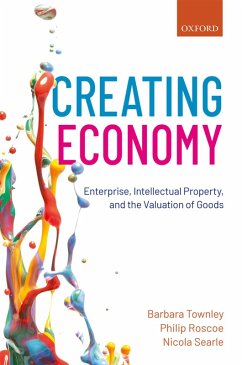Creativity is at the vanguard of contemporary capitalism, valorised as a form of capital in its own right. It is the centrepiece of the vaunted 'creative economy', the creative industries, and is increasingly a focus of public policy. But what is economic about creativity? How can creative labour become the basis for a distinctive global industry? And how has the solitary artist, a figment of the romantic thought, become the creative entrepreneur of twenty-first century economic imagining? This book offers a fresh approach to this topic within the creative industries through a focus on intellectual property. It follows IP and its associated rights (IPR) through the creative economy, showing how it shapes creative products and configures the economic agency of creative producers. IP helps to manage risk, settle what is valuable, extract revenues, and protect future profits. It is the central mechanism in organising the market for creative goods. Most importantly, it shows that IP/IPR is crucial in the dialectic between symbolic and economic value on which the creative industries depend; IP/IPR hold the creative industries together. This book is based on a detailed empirical study of creative producers in the UK, extending the sociological studies of markets to an analysis of the UK's creative industries. In doing so, it makes an important, empirically grounded contribution to debates around creativity, entrepreneurship, and uncertainty in creative industries, and will be of interest to scholars and policymakers alike.
Dieser Download kann aus rechtlichen Gründen nur mit Rechnungsadresse in A, B, BG, CY, CZ, D, DK, EW, E, FIN, F, GR, HR, H, IRL, I, LT, L, LR, M, NL, PL, P, R, S, SLO, SK ausgeliefert werden.


